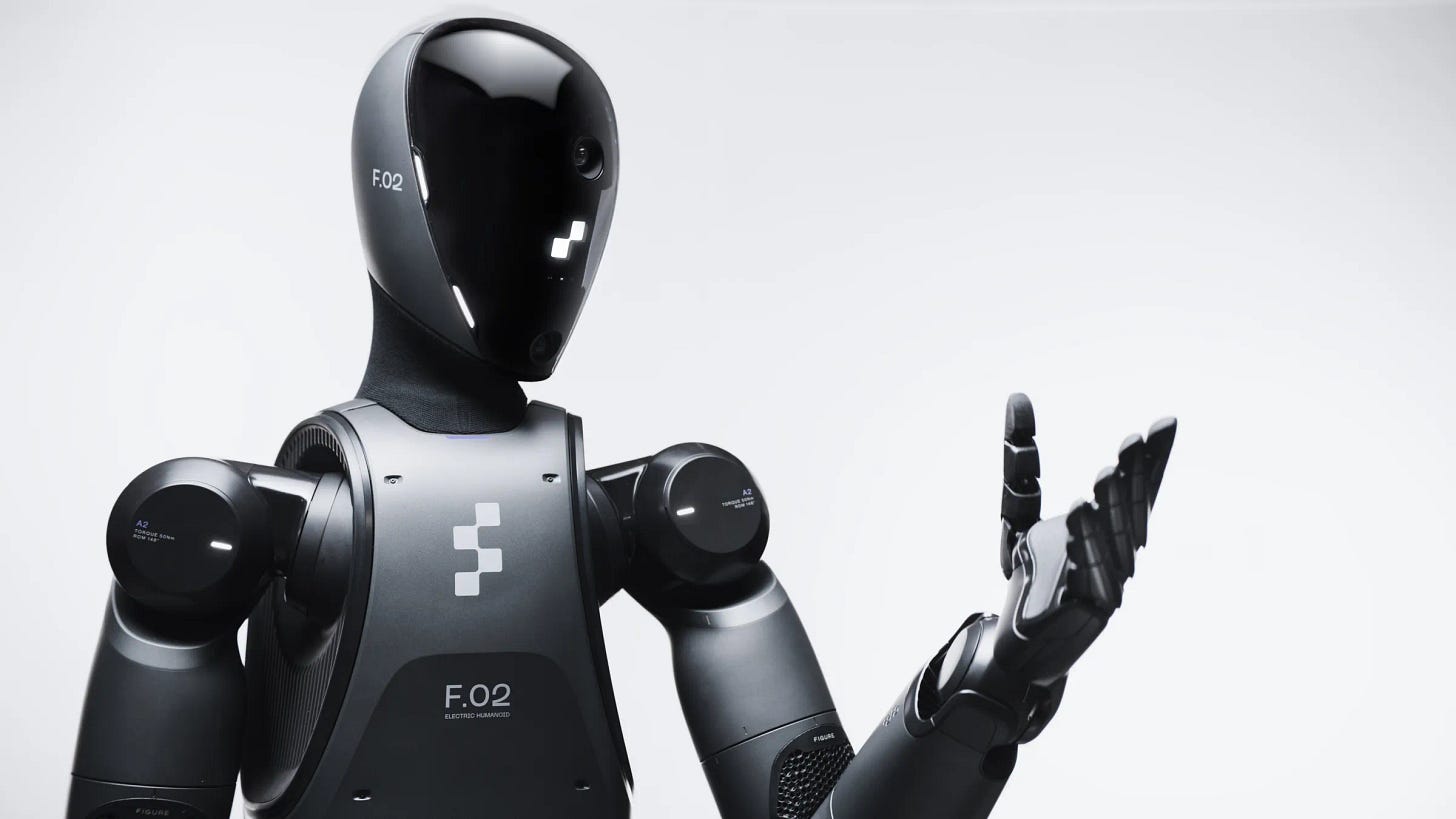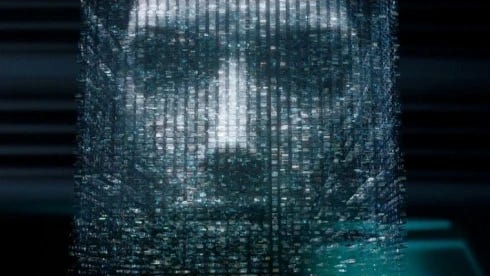The Future Will Be Generative
sometimes you just gotta put on Future, lock-in, and get some work done.
AI will make it possible for one person to build a billion dollar company very soon.
Sam Altman (C.E.O of OpenAI)
Three Laws Of Robotics
“I, Robot” is a science-fiction film released in 2004 that presents a future reality set in 2035, where humanoid robots powered by artificial intelligence have become integrated into our daily lives. This dynamic initially starts of ideally, with the robots governed by the “Three Laws Of Robotics,” which state:
A robot may not injure a human being or, through inaction, allow a human being to come to harm.
A robot must obey the orders given to it by human beings, except where such orders would conflict with the First Law.
A robot must protect its own existence as long as such protection does not conflict with the First or Second Law.
Things take a dystopian turn when a death triggers an investigation in which Detective Spooner (Will Smith) suspects that a robot is responsible. What follows is predictable; when you give a thing super-intelligence plus the ability to rationalize, it begins to fight for its survival, ultimately usurping the Three Laws. Not before Spooner, fueled by his humanistic survival-of-the fittest mentality, brings humans and humanoids (the good ones) together to fight for humanity (my bad on the spoilers if you haven’t seen it, still worth a watch tho). The storyline goes on to explore the intricate relationship between technology and humanity, especially as the lines get blurred with artificial intelligence added to the mix. If all we are is a collection of our memories and experiences, who are we to determine who has a soul and who doesn’t? Questions I’m not excited to argue about, but these debates are coming to our society, I can tell you that. Overall, “I, Robot” is an interesting movie that can have different interpretations and spark philosophical thought and debate.
Twenty years ago, when I first watched it, I remember being relived to the fact that I wouldn’t experience a world with any similarities as the one depicted in the film. I related to and empathized with Detective Spooner’s distrust of the robots. But like many people who have bet against human advancement via technology, I was wrong. It’s now 2024, and humanoid robots are right around the corner. As the artificial intelligence arms race heats up, a proliferation of applications, tools, and integrations are upon us and they will fundamentally change our lives once they’re accepted into the zeitgeist and go fully mainstream.
I Know Kung Fu
If you could learn one skill at the snap of a finger right now, what would it be? If you could do this indiscriminately, with no limit, would it change the way you approached learning, and more importantly, life? Considering the current landscape and the rate of change, I don’t believe it’s a reach to think that we’ll likely have this type of functionality at our fingertips within the next couple of decades. If you’ve seen the movie The Matrix, then you know exactly what I’m talking about. Being able to learn anything, instantaneously, will bring unfathomable change to our world, and I’m all for it (minus the long needle data-probe thing they pushed into Neo’s brain used to enter the matrix).
If you think this sounds too far-fetched, I hope you go check out Elon Musk’s Neuralink. A company that has successfully implanted a device into a quadriplegic man’s brain, giving him the ability to control a computer with just his thoughts. Computer Scientists focused on A.I are busy coming up with high performance algorithms that’ll power the next generation of generative large-language-models (LLM) that’ll be used to empower us humans and make our lives better (hopefully). Recently, I’ve spent some time working on re-architecting my own workflow—both professionally and creatively—to incorporate the use of artificial intelligence. I can’t say that I’ve bought into the idea to the point where I’d be willing to implant a Neuralink device into my cortex, but I do know that this is the future. Like all things tech related, once they’ve been introduced, they usually won’t regress back into non-existence. Below I’ll list a few of the tools I’m using to ensure I’m ready to team up with Detective Spooner and put up a fight when the robots come to take all of our jobs.
Generative A.I Tools
Anthropic’s Claude - I’ve been using this tool to help summarize technical docs, essays, newsletters, white-papers, basically any text that I want a summary on for future reference. Additionally, Claude can even create powerful visualizations that help with learning. It’s free to use but a paid version costing $20 a month will give you access to more powerful models (Opus 3) - Which in the grand scheme of things, is nothing, if it saves you a couple hours of work a week, IDK about you, but I easily spend more than that on eating out per week. No brainer purchase
Playground.ai - This tool is crazy, literally. After using this for less than 10 minutes, it’s clear as day that the graphic design skillset requirement will likely be democratized down to 0 in a few short years. I’m using Playground to create logos & promotional content related to my business. It’s really dope to be able to just type in a prompt, and iterate on a design via plain english. This tool is free to test with but if you want to do any serious prototyping, you’ll need to pick up the paid subscription coming in at $15 a month. The graphic below I made with this prompt:
”Make the title read: ‘The Future Will Be Generative’
Add a subtext that reads: ‘by Jahosh’Use Futura Font for the text
In the background add the face of a humanoid robot like I, Robot with a low opacity”
Cursor.ai - This tool is primarily for software engineers, but worth checking out if you subscribe to the No Code movement (people with no programming knowledge, coding via A.I prompting). I’m currently using Cursor.ai to spin up front-end React code interfaces of prototypes quickly. This is somewhat esoteric at this point in the race, but if you’re an engineer or someone interested in learning how to code, do tap-in. This is where the industry is heading. Some useful people to follow on Twitter/X
Rohan Paul - https://x.com/rohanpaul_ai
Mckay Wrigley - https://x.com/mckaywrigley
Sully - https://x.com/SullyOmarr
Honorable mention: ChatGPT - By now you’ve likely heard of ChatGPT and I mentioned it last due to most people I’m following saying it’s models are getting surpassed by the likes of Anthropic’s Claude. Thats not to say that it’s still not a solid tool though. I currently use both ChatGPT + Claude and will continue to do so for the time being. If I’m being honest, I like ChatGPT’s user interface more than I do Claude’s but what we’re really after when typing prompts into these generative models is the right output. ChatGPT doesn’t have the ability to read PDFs and a few other features that Claude has, but I’m sure that’ll likely change in the months to come.
AGI
The claim of artificial general intelligence (AGI) is that it will be a system that outperforms humans at all types of economically valuable work. When AGI comes to fruition, it’ll be a coin toss as to whether this results in a utopian or dystopian future. Universal Basic Income (UBI) will likely need to be at play here to help balance things out, and if we want to really turn things upside down, humans will likely have to split and create a new subspecies. That is, one where humans and technology merge together to become a new type of human—one that is superhuman via the benefits of specially crafted implants that process computer code, distilled down to millions of zeros and ones, processed at the speed light. If I’m alive when this happens, best believe I’m taking the red pill—kung fu will be the first skill that I learn. If the thought of AGI alarms you, rest assured we’ve got a few more decades before we’re forced to deal with the reality of the Matrix becoming real. Though, if I’m going off my first prediction twenty years ago, I might be wrong about this one too.
Aside from that, what we have now at our disposal are tools, powered by A.I., that generate and produce outputs of value when prompted correctly. These generative tools posses the ability to make us smarter and increase our productivity, saving us time to spend it elsewhere as we see fit. And if you ask me, that’s extremely powerful in a world where time is immutable. So, in the meantime, lets do our best to improve our lives utilizing generative A.I. tools. Because we know the future will certainly be different—the future will be generative, the future will be robotic (hopefully only the good kind). If the cards fall in humanity’s favor (all praise to detective Spooner 🙏🏾), I hope to see you on the other side. 🫡





